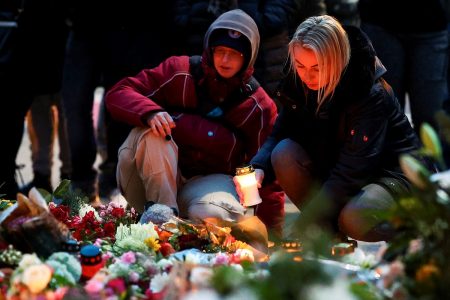The sudden decision to close down ERT is yet another example of the government’s sloppiness and lack of foresight. It triggered the reflexes of thousands who want a public broadcaster to provide objective news coverage and support cultural programming, without being held hostage to market commitments.
At the same time it triggered a potential crisis in the government, the last thing the country needs at the moment. The demonstration of power against a public service, such as the news, as well as against thousands of employees, is not a model democratic operation.
Obviously ERT wasn’t a glowing example of management and organization. Since its inception it had a shady past. As a rule of thumb, recruitment was based on political affiliation and under-the-table favors. Despite the problems being well-known, this did not deter many from using it for their own political gains. There are many recent examples of recruitments and approval of television programming based on political alliances. It is hypocritical for the government to claim that ERT was a hotbed of corruption and public waste.
The employees are also to blame though, since they did their best to devalue ERT. While we were witnesses of repeated union-backed strikes of the past few months, they never attempted to cut the ties with whoever is in power at the time. The unions of journalists and other staff constantly fought over payroll demands, but never questioned the shady operation tactics. So now, 2650 employees are in the air.
The need for a public television that offers pluralistic and objective information, that will support the arts, culture, social and individual rights is very real and a given. Just as much a given is the need for ERT to adapt to the needs of our times and to stop playing political games and being the voice-piece of each government, once and for all. Unfortunately the signs so far are not encouraging. However many attempts were made after the regime change they all ended up the same, from the very first plan devised by the BBC’s Sir Hugh Greene’s plan.
The crocodile tears shed from the representatives of the political parties, which one way or the other used ERT for their own political gains do not suggest that there is a better future. It is imperative that public television operates as soon as possible, based on meritocracy and rationality, to give a second chance to ERT’s best executives, without any political (or otherwise) commitments and preconceptions. All is left is to see if the government’s promises of a modern, pluralistic public television will become reality or if they will be proven false once again.
TO VIMA


